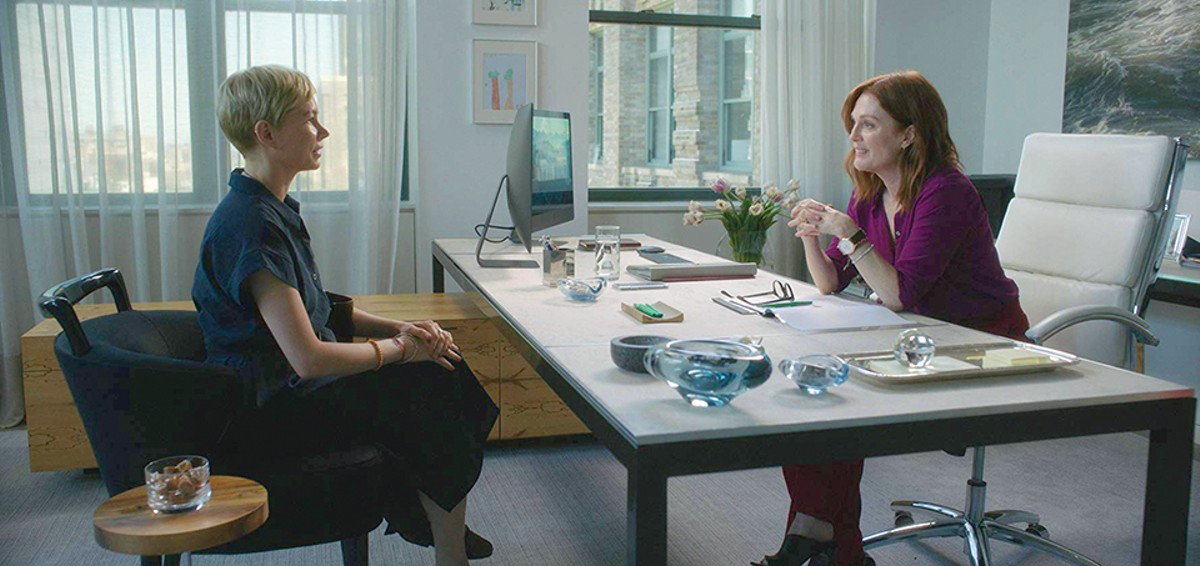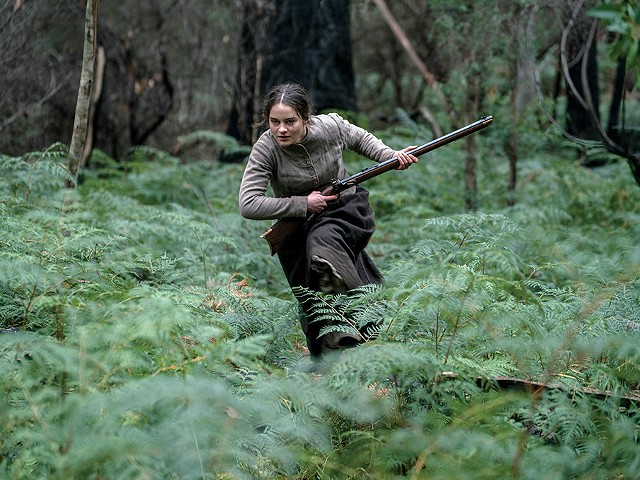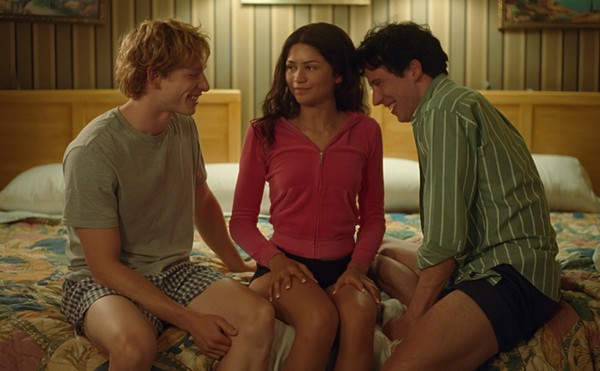Melodrama is an awkward, difficult genre, filled with big emotions, big problems and big gestures to reconcile them. It's not a genre well-suited for the current day, when major life events are announced by text messages or Facebook status updates. In a time where emojis outrank emotions, the complexities of the melodrama are easily dismissed and scorned. Confused because you have to choose between your birth mother and adoptive parents? There's an app for that.
The best directors of melodrama from Douglas Sirk to Fassbinder knew that you had to dive in to the pathos, no matter how awkward or embarrassing. It's not a genre for filmmakers who want to look cool. Irony is not an option.
From the very beginning, you can sense that the people behind After the Wedding, a remake — with a few significant gender reversals — of a 2006 Danish film, are a little embarrassed by the potentially emotional upheavals of the story. Forty minutes pass before writer-director Bart Freundlich gets around to establishing the central conflict. Another significant plot point is thrown in during the final twenty minutes, almost as an afterthought. Rather than get to the point, Freundlich swoops and twists his camera around the opulent Oyster Bay setting, as if looking for a distraction.
The source of his embarrassment? Isabel (Michelle Williams), who teaches children at an orphanage in India, is called to New York to meet with a potential donor. (It may or may not be a significant plot point that the donor has specified that Isabel must attend the meeting personally.) Upon her arrival, the would-be donor Theresa (Julianne Moore), multi-millionaire head of some sort of media business, is strangely noncommittal but insists that Isabel must stay a few more days, inviting her to attend her daughter's wedding. At the wedding, a series of meaningful stares and closeups make it clear that Isabel was once involved with Oscar (Billy Crudup), Theresa's sculptor husband. But wait, there's more: During the reception speeches, she also figures out that the new bride (Abby Quinn) is the daughter she and Oscar gave up for adoption 21 years earlier. (And if this weren't already a set of contrivances that would make Stella Dallas blush, the filmmakers add an incurable illness to the mix.) Confrontations and complications ensue.
After the Wedding is mostly a film about beautiful, rich people in an elegant and expensive location, the kind of people who use a cutting board when buttering toast. Even the cliché of "first world problems" doesn't begin to cover their situation. You might think that such a crazy salad of family issues might take precedence over the environment, but Freundlich (who is the husband of producer/star Moore) isn't all that interested. He's more interested in pulling back to enjoy the setting than in digging at the emotional wounds. He runs the camera past Oscar's large metal sculptures, admires the architecture of Theresa's glass house of an office, even lingers over a bird's nest recovered from a fallen tree long enough to make one think it's a symbol of something or other. The convoluted plot simply isn't worth his — or anyone's — time. Sure, this family has problems, but what of them? This is a melodrama (but with a happy ending of sorts) where nothing ever really seems to be at risk because Money Solves Everything.
The odd thing is that if you can look past the considerable flaws in both story and structure — the problems that don't really need to exist or wouldn't seem like such a leap if the characters would do more than drop hints about their feelings — the film almost works. Freundlich is understated where a director like Sirk would be almost luridly hot, but still capable of hitting emotional effects from time to time, thanks entirely to the efforts of his cast. Quinn and the underrated Crudup find genuine moments of thoughtfulness in their underwritten characters, while Williams and Moore, two of the finest contemporary actresses, make even the script's most extreme stretches seem almost natural. At their best, the performers hint at a better film that may have been just beneath the surface of this one.






